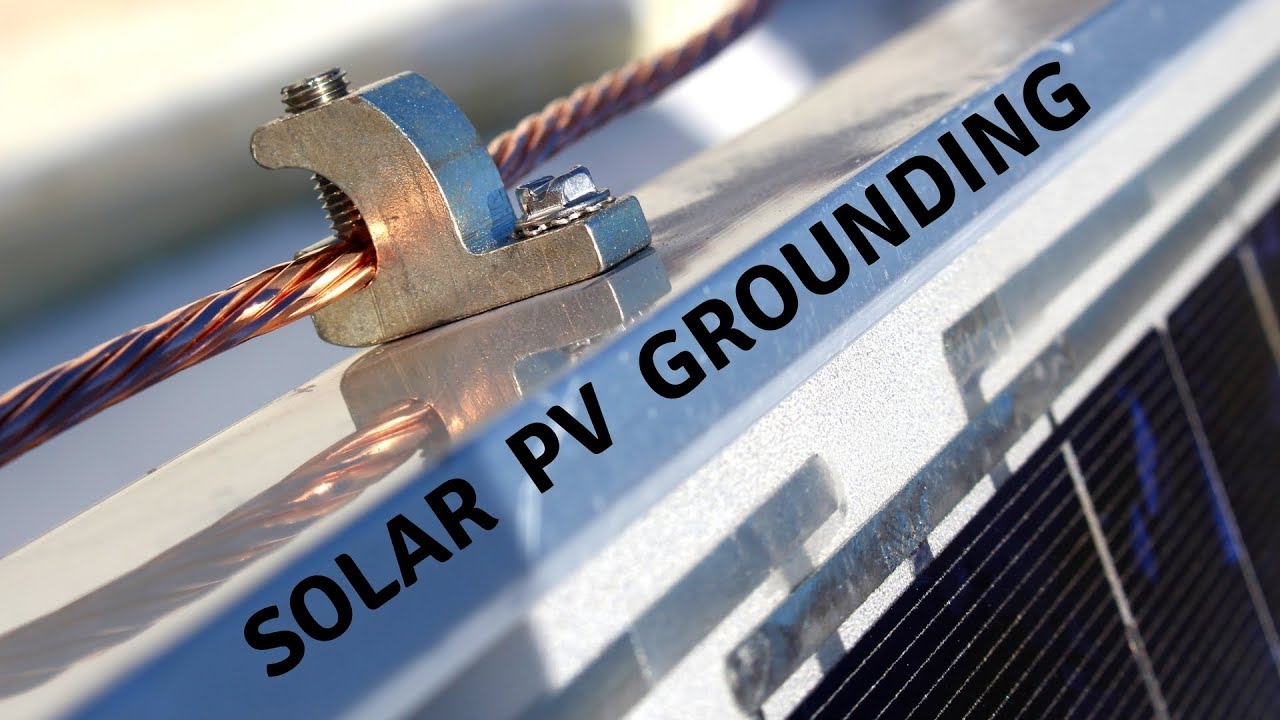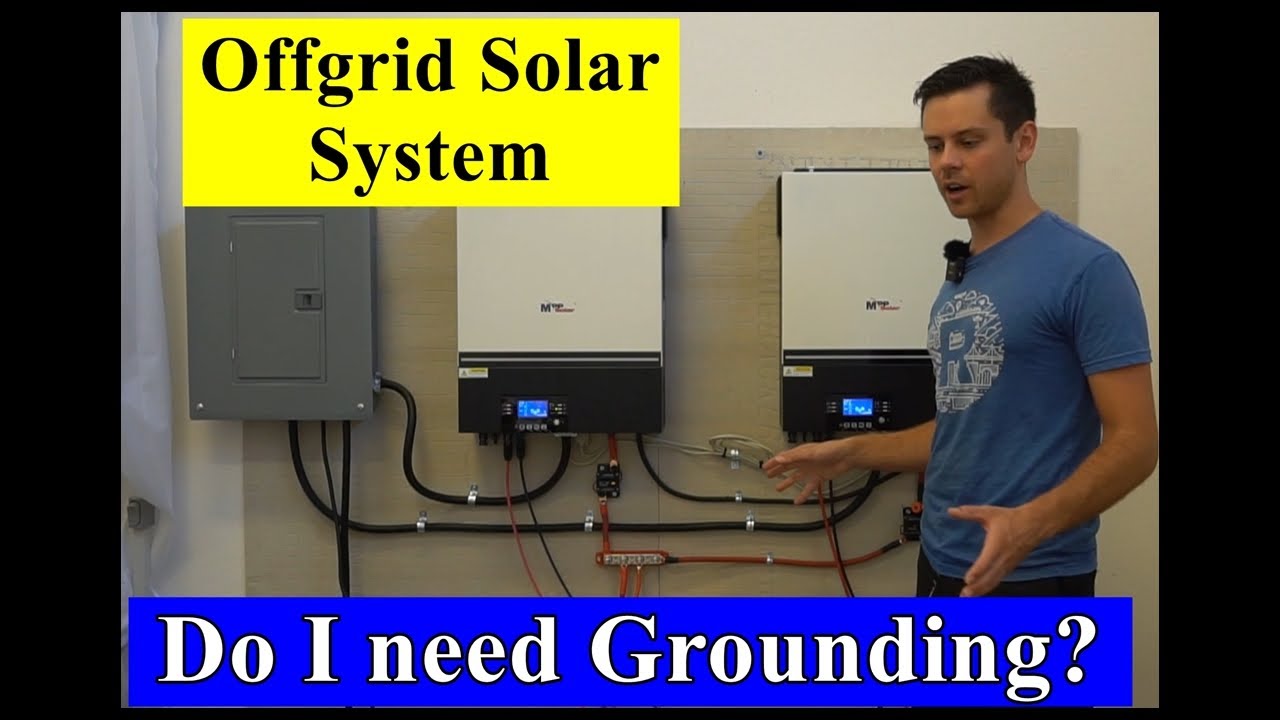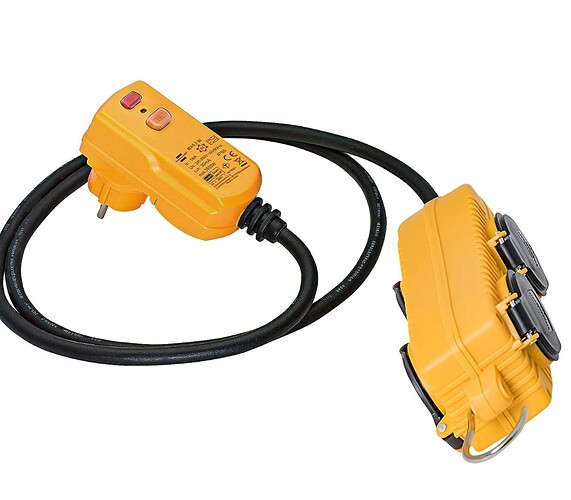Hi there,
I am about to install my AC500 + 2*B300S off grid in an allotment with several PV-modules attached. I’ve read the manual thoroughly but nowhere found a single word about grounding.
Do I need to ground my off grid installation (I feel I should)?
BR
@bluetti_wwwpatrickwagnerde Off-grid machines can generally be used without grounding, but there are special circumstances that require the machine to be grounded:
- charging an EV (there is a grounding requirement for the power supply equipment, and our machines are ground-hung, so a neutral grounding plug is required)
- sockets with GFCI, AFCI, which also have grounding requirements for the equipment.
If you have the above needs, the machine still needs to be grounded.
@BLUETTI I am asking myself the same as I’ll soon upgrade my off-grid setup.
Can you please share a link that explains how to ground an AC300/AC500 in a bit more details please? Other posts like @wtytke 's setup uses GFCI (and already saved him trouble), but being EU based, I’d like to make sure I properly ground it since it has a “hot” neutral (which is uncommon here).
BTW @bluetti_wwwpatrickwagnerde if your PV modules are roof-grade, and installed in a more permanent way (vs portable panels), then yes, ground them. You don’t want your “island” to become a shock hazard. Grounding solar panels isn’t hard, see example here. It’s important to consider grounding the panels (on the DC/input side) AND grounding the AC part too:
The easiest way to ground is to wall charge directly with the AC charging cable.
AC300/AC500 can also be grounded with a connecting cable when connected to the distribution box. ![]()
True, but what about a full off-grid situation? The built-in mechanism is more about protecting the units from short-circuit rather than protecting the user like a bathroom breaker (30mA) would.
@Derceto
I am about to open a can of worms…Grounding is a very difficult subject, the more you read and more you investigate, the more questions you develop and then even more and more questions. The problem is that the NEC even changes their “philosophy”. After hours and hours watching Mike Holt (https://www.mikeholt.com/) - I have developed a firm set of ideals and for a year and many many close calls with lightning etc. I wrote about it in DIY (Will Prowse’s Forum) when starting out: https://diysolarforum.com/threads/solar-generators-solar-panel-array-and-grounding-vs-grounded-confusion.37582/
I would watch Mike Holt (link above) and Will Prowse (link below) on grounding…
A summary of what I learned and reinforced my grounding ideals.
- Grounding Solar Panels and Grounding (neutral bonding etc…) are completely different subjects.
So Panel grounding, I would watch this video (from Mike Holt - jump to 53 min mark) - Grounding - Safety Fundamentals (1hr:13min:19sec) - YouTube - Lightning Strikes: We have a lot of lighting and NOTHING electronic survives a direct hit - so you’re screwed if you are hit. Trees die, Cars need a new $3000 computer, even stoves get pushed away from the wall. However, most problems are static charge from a distance like a situation that hit my neighbors yard, but wiped out my cameras on that side of the house (and they were grounded to the house ground.) Anyways back to my story, when lightning hits the ground, it travels and for me if I had a grounding rod, the differential will collect at the ground rod and travel into my equipment (like in the video). Now if you are in a lightning free area, my philosophy may possibly change, I would be more concerned for the dry air static charge buildup and have it discharge into the ground. Now, of course, I inspect my arrays frequently and careful of “touching” the frames in case there is a loose wire, although my MC4 wires are 90% covered by “Squirrel resistant” shielding. Also, since they (panels) are not on my house, I am not concerned about a fire, if they short. I did attach 2 Isolation switches that allow me to shut off my equipment/batteries from the solar panels very easily. Especially if I am plugging/unplugging MC 4 connections anywhere in the loop.
So as for the grounding of equipment, I use the GFCI’s that detects a 5mA Ground neutral fault within 25ms. I highly suggest those for ANYTHING outside that may get wet or affected by weather. ALSO, I suggest all indoor electronics to be plugged into a very good Surge Protector (not a power strip). My AC300 is plugged into the wall socket but NOT wired into the House Panel (where I read that many of the problems exist when trying to use the AC300 in that fashion). I highly suggest to watch this full video by Will Prowse take note of charge gradients and what he mentions towards the end of the video, also.
Note: About a year ago there was a situation with the AC300 26/26 errors that made plugging the system into a regular AC socket a problem, it was solved with a firmware update…I believe there was a setting that was set too strict, but has since been solved and working ever since.
So are my panels grounded with a ground rod, actually no, but I am very careful when cleaning them or touching the frames, just in case a squirrel eats at the wires, somehow. The panels and wires are attached to wood above my head, so the charge can’t travel to the ground with my feet being wet on my patio after a rainstorm. Now I know that goes against so many peoples belief (especially if using the NEC code book as a bible). I am off-grid (at least in a hybrid way), and the all-in-ones don’t really need grounded unless you are connecting into the main grid panel, at that point I would definitely get an electrician.
That is my take on grounding. Of course, if you are connecting to the grid and/or putting the panels on your roof, you will need to be more strict in your set-up for code and insurance purposes.
Let’s focus this a little bit.
We do speak about a permanent installation.
Actually lightning strikes will strongly increase within the next decade(s), therefore everyone should have at least an inner overvoltage protection. For Germany they differentiate basic (legally required for grid-connected installations), intermediate (for sub-distributions) and fine protection (integrated to wall outlets). As a grid-connected installation does also have a grounding, those combined overvoltage protections should save you from the collateral damage done by lightning strike. I played this game with my electritian and an lightning-protection company for full inner and outer protection for my house.
But: Here I do speak a off-grid installation in an area where I am relatively save from direct + indirect lightning damage (a valley surrounded with several hills with high trees). So my use case (and please let us limit this thread to it) is protecting this installation from static charging.
@Derceto: Thanks for the hint with PV-module-grounding, I will do that.
@Admin: As I do plan to install electronic sensitive devices as well as to charge my e-car in the future, I need to ground my installation. In this case would I need to connect each and every outlet-neutral of the AC500 to the ground or is it enough to ground one of them?
Get one neutral ground terminal and you’re good to go.
https://www.amazon.com/Southwire-Company-LLC-44400-Generator/dp/B07F4R7BDL
Thanks - do you also have a recommendation for your EU customers? :-)
[quote=“wtytke, post:6, topic:20882”]
I am about to open a can of worms[/quote]
Well thanks so much for all the info @wtytke I’ll now listen to the vid and do more research to better understand some aspects. Will definitely look for EU GFCI. Thankfully it’s a lightning free area, so I’ll follow your advice.
Cheers!
One more thing…In my opinion/philosophy, it all comes down to minimize risk based on your situation. In dry areas (like Will Prowse’s Nevada area) vs Florida’s Lightning capital, risks with permanent/semi-Permanent solar panels, the situation’s differ. Also, if you have the panels on the ground vs above ground and where the wires are located, what critters are around, will you have children around who like to play with things that they shouldn’t, you just need to plan on what you think is best. For me, we know a DIRECT lightning strike is like a condensed localized bomb (not much survives) even Zap Caps that the Power company supplies. Nearby strikes are what knocks out many things, but usually surge protectors help a lot, but many people forget that surges travel throughout, if you have a Cable modem that gets hit, a surge through cable could then travel via ethernet cable which then travels to you AV receiver which then travels and knocks out your HDMI items and anything connected that way (Yes I did have that happen) A nice 7.2 receiver, all HDMI ports zapped (and read all about HDMI’s being the weakest link). I now even have HDMI protectors.
Anyhow, static charge accumulation is a large consideration in notoriously dry areas (it hardly gets below 40% humidity here), so I don’t worry about that, at all. But a ground rod in a Dry area to dissipate the static charge may be a necessity (especially if cleaning the panels). As for the equipment being grounded, be sure to NEVER have to 2+ ground rods with the neutral bonding, that is a shock hazard and equipment being fried situation. These all-in-ones are using “floating neutral generator” set-ups.
Note: if you are not plugging the AC300/500 in an AC outlet, that Neutral ground terminal mentioned above will work, I read about them when I originally purchased the unit, but didn’t need it since everything worked properly (I did a check with an outlet tester) like one of these (for US) : Amazon.com
Excellent, thanks for the added details. I never imagined there were such areas… I’ll order the ground rod and some of those switches ![]()
Can’t imagine the constant stress of this sort of environment… happened once in my lifetime here, was a kid, there was a large “fireball” that travelled down the road as lightning struck, and all electronics were zapped in a dozen houses, including ours.
Well this seems to be a start, a cord with a built-in 10mA breaker … just a few days until it’s delivered ![]()
wow didn’t think of that tanks mate - but I saw your cabin pictures, how do you ground your inverter when no power plug is available, and no car can be used either?
Hey Jan, I suggest this very detailed posted by a fellow user:
Well this seems to be a start, a cord with a built-in 10mA breaker … just a few days until it’s delivered visit custom patches canada


